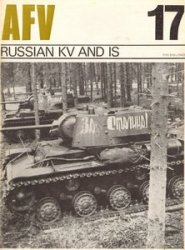Once the United States declared hostilities, opposition to the war got little
sympathy from the government and most Americans. The government
imposed harsh measures to squelch criticism. Laws like the Espionage Act
(June 1917) and the Sedition Act (May 1918) penalized heavily not only
actions in opposition to the war effort, such as obstructing conscription or
the sale of war bonds, but also speech and writing that criticized government
policies. The Supreme Court upheld the laws, which were applied widely.
Justice Oliver Wendell Holmes defended restrictions on free speech in time
of national danger by noting that no one had the right to cry "fire" in a
crowded theater. The laws inflamed fears of enemy sabotage and led to
excessive reprisals against imagined threats to security. More than 2,000
Americans had to defend themselves against prosecution under the Espionage
Act, and half of those accused were convicted.
Americans outside government acted in even more sweeping fashion.
The government's "Hate the Hun" campaign rapidly spread into a popular
crusade against all things German. Superpatriots tried to shut down school
and university courses in the German language and to ban the performance
of German music, and they invaded the offices of the German-language
press. Anything German became suspect in a climate where German-haters
spread rumors that Germans put ground glass in Red Cross bandages or
worse. Sauerkraut became "liberty cabbage," and German-American companies
changed their names to EngHsh-sounding ones. In Indiana, East
Germantown was renamed Pershing; in Iowa, Berlin was transformed into
Lincoln. Both the Philadelphia Orchestra and the Metropolitan Opera
Company banned German music. Violence against individuals of German
ancestry, against spokesmen for pacifism, and against labor leaders and
politicians opposed to the war stained American life. Unofficial groups
operating with government sanction, such as the American Protective
League, spied on their neighbors. Wilson did little to check the excesses,
which served to fuel the anti-German crusade.
More important, as the war revealed the divided loyalties in an immigrant
society, with Old World hatred carried to New World settings, efforts to
promote nationalism gained force. Businesses instituted "Americanization"
programs to teach their foreign-bom workers English and to impose a
uniform set of rules in the workplace. Many social reformers shifted their
emphasis from encouraging gradual adaptation to American ways to calls
for more aggressive Americanization in adult education programs and in
the schools.




 World History
World History









